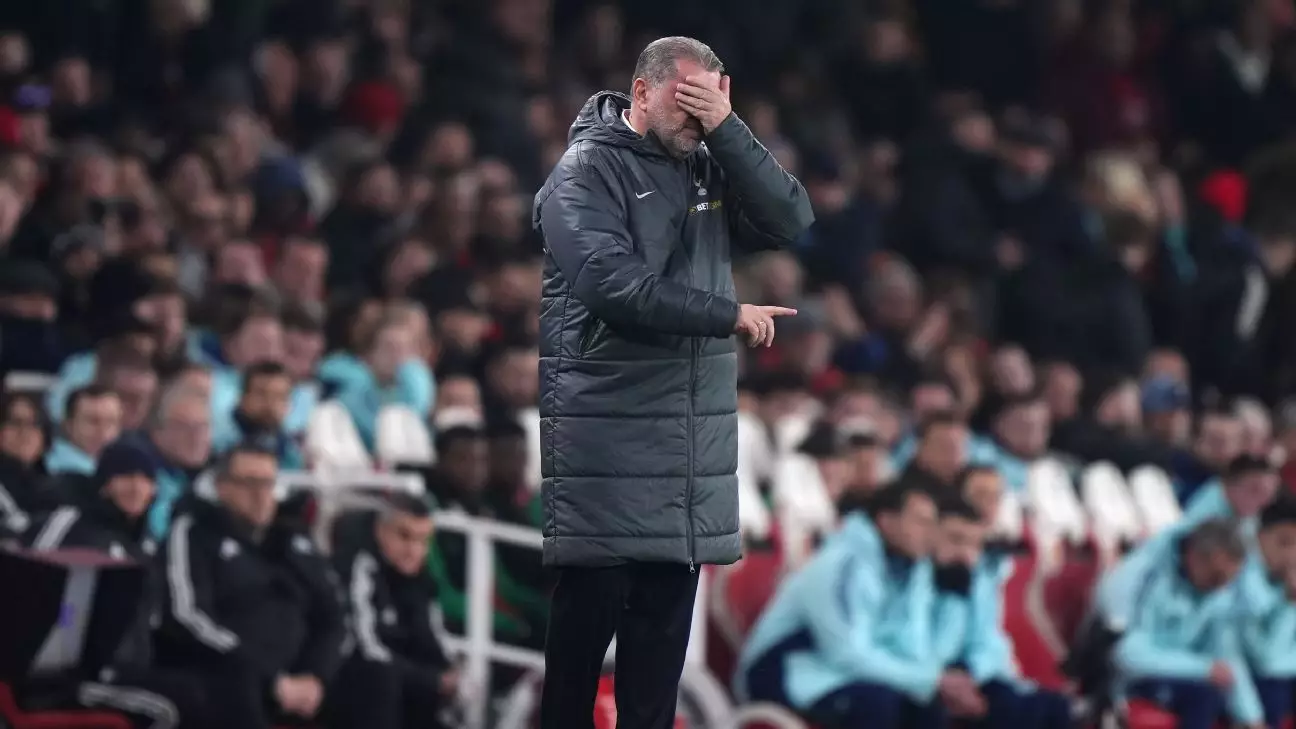Tottenham Hotspur’s recent 2-1 defeat to rivals Arsenal was a sobering wake-up call for the club and its fanbase. Manager Ange Postecoglou expressed his disappointment candidly, hoping that the players were feeling the weight of the loss. It was a match that encapsulated the highs and lows of football; Spurs managed to claim an early lead through Son Heung-Min, only to falter and concede two goals before the half-time whistle. Such a turnaround left fans bewildered, highlighting the critical need for consistency and resilience within the team.
The match was not just a loss but a stark representation of the strategic missteps made by Tottenham. Following Son’s opening goal in the 23rd minute, the momentum surprisingly shifted in favor of Arsenal. The equalizer, a result of an own goal by Dominic Solanke, exemplifies a lack of concentration that permeated the Spurs’ defense. The situation was aggravated further by Leandro Trossard’s strike shortly before halftime, which crystallized the deficiencies in the squad’s defensive tactics. Postecoglou’s decision to replace Pape Matar Sarr and Yves Bissouma after the break highlighted a recognition that change was desperately needed, yet it ultimately failed to yield the desired effect.
One of the most striking aspects of Postecoglou’s post-match comments was his emphasis on the team’s identity. He articulated that Spurs failed to embody the aggressive approach that is often associated with their brand of football. This passivity, especially during the first half, not only allowed Arsenal to dictate the pace but also alienated fans who expect a more tenacious display. “We just didn’t play anywhere near our identity,” Postecoglou lamented, suggesting that a lack of intensity has become a pattern detrimental to the team’s performance. This introspection indicates that the team has serious work ahead to reconnect with their core values on the pitch.
In the wake of the match, discussions surrounding controversial refereeing decisions often surface, and Postecoglou wisely chose to sidestep these provocations. His refusal to dwell on the referee’s decisions reflects a professional mindset focused on what can be controlled—the team’s performance. Although Spurs were aggrieved by what could have been a crucial decision that favored them, it’s clear that the defeat stemmed more from their own shortcomings than from external factors. Such a mentality is vital as the club looks to regroup and move forward from this setback.
Interestingly, while the loss was disappointing, there were moments of promise, particularly with the performances of young players like Archie Gray and Lucas Bergvall. Postecoglou’s desire for his younger squad members to experience disappointment serves as a poignant lesson in professional sport; growth often stems from adversity. His insistence that such losses should not be normalized at the club is a rallying cry for both the veterans and emerging talents to strive for excellence.
The defeat against Arsenal has created a pivotal moment for Tottenham Hotspur. As Postecoglou navigates the aftermath, his insights into the need for aggression, collective identity, and learning from setbacks are crucial guiding principles. The challenge ahead is to channel the momentum from this disappointment into a renewed vigor to reclaim their spot in the Premier League standings.

